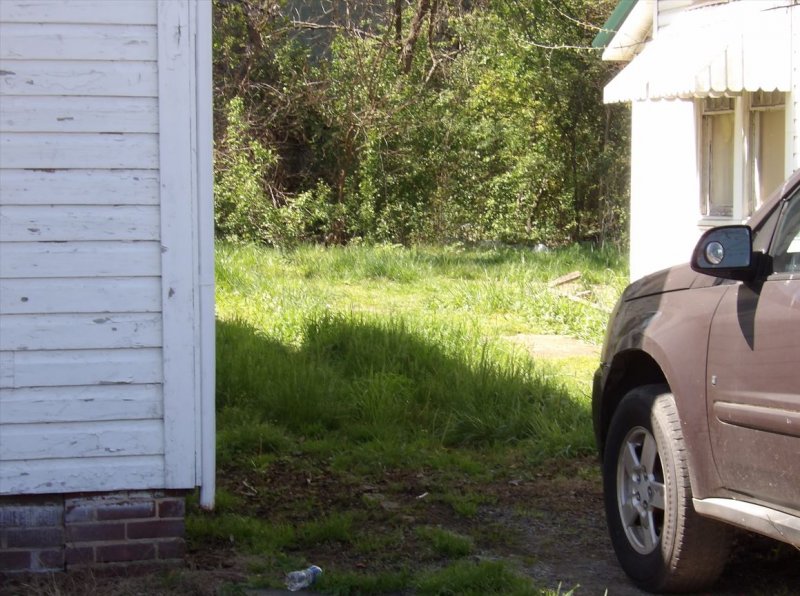Code Compliance: Grass, Weeds Must Be Mowed
 Friday, March 31st, 2023
Friday, March 31st, 2023
The pollen on your windshield might as well be a reminder to add cutting the grass to your to-do list. With the return of spring comes the return of growing season for grass and other plants. By City ordinance, that also means the return of grass cutting season. The City of Dalton's code compliance unit is already working to make sure properties in town stay in compliance with the ordinance which requires grass to be kept below 12 inches.
"We're trying to get ahead of it now to try to set the standard for how the rest of the summer is going to go as far as us trying to stay on top of it," said Dan Lewallen, one of Dalton's code compliance inspectors.
Caption: A recent photo from the City of Dalton code compliance unit shows grass in excess of 12 inches tall on a property within the city limits
The International Property Maintenance Code section on grass (IPMC 302.4) as adopted in the City of Dalton's code of ordinances reads, "premises and exterior property shall be maintained free from weeds or plant growth in excess of 12 inches. Noxious weeds shall be prohibited. Weeds shall be defined as all grasses, annual plants and vegetation, other than trees or shrubs provided; however, this term shall not include cultivated flowers and gardens."
The requirement to keep grass and other vegetiation under control isn't just about making the city look neat and well-maintained. Allowing lots to become overgrown can provide refuge for rodents like rats and mice to become a public health problem. And simply keeping the grass below a foot tall shouldn't be a hardship for most residents.
"We’re talking about [grass that would be] almost knee high on most people," Lewallen said. "Grass, any weeds or undergrowth - and noxious weeds, I think there are a few different definitions for noxious weeds, but that would be things like kudzu and that kind of thing. You've got to keep them under control."
The city code applies not just to residences and businesses, but also to any vacant properties as well. Unimproved lots as well as any unoccupied residential or commercial properties must also be maintained to stay in compliance.
"I've actually got three that I've just written up this morning that we have to address, they're vacant lots and the owners are from out of town so I'm going to have to mail these notices out," Lewallen said. "Vacant lots and commercial lots, they fit some of the same criteria."
Owners of properties that are found to be in violation of IPMC 302.4 will first be contacted with a notice of violation by the code compliance unit. Code inspectors then give the property owner a deadline to correct the violation. If they don't work to address the violation, then a citation can be issued and property owners may be required to appear before the Municipal Court. For the code compliance unit, though, that's a last resort option.
"Paying fines and all that kind of thing, that’s not our goal to get people in the situation where they’re having to pay fines for their grass. It’s just getting the problem taken care of is our biggest concern," Lewellan explained. "We try to consider circumstances when we give people time limits on addressing violations. We try to look forward and see what the weather will be for the next few days, for example, but at the same time that’s something that most people can get taken care of in just a couple of days. If worse comes to worse, we’ll definitely end up writing citations on it."
